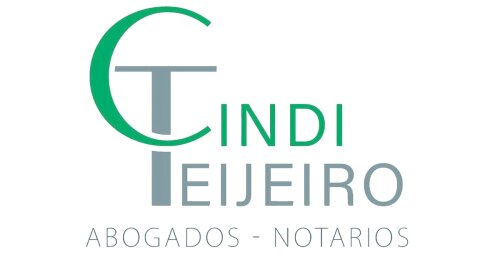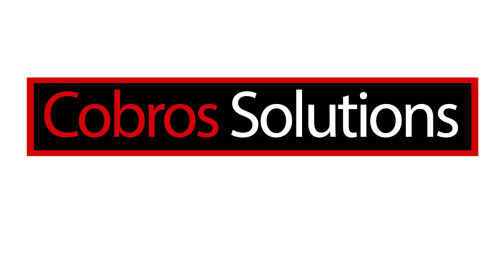Best ADR Mediation & Arbitration Lawyers in Bonao
Share your needs with us, get contacted by law firms.
Free. Takes 2 min.
List of the best lawyers in Bonao, Dominican Republic
About ADR Mediation & Arbitration Law in Bonao, Dominican Republic
Alternative dispute resolution in Bonao follows Dominican Republic law and recognized international standards. Mediation is a voluntary, confidential process guided by a neutral mediator who helps parties reach a mutually acceptable settlement. Arbitration is a private adjudicative process where one or more arbitrators issue a binding decision known as an award. Businesses and individuals in Bonao frequently use ADR to resolve commercial, construction, real estate, supply chain, mining, and neighborhood or community disputes more efficiently than traditional litigation.
Dominican arbitration practice is modern and generally aligned with the UNCITRAL Model Law. The country is party to the New York Convention, which facilitates recognition and enforcement of foreign arbitral awards. Institutional ADR services are available through well established Dominican centers, and proceedings can be seated in Bonao by agreement, with hearings held locally or in nearby cities such as Santo Domingo or Santiago.
Mediation is increasingly used in commercial, consumer, labor, and community contexts. Many institutions and public bodies offer conciliation or mediation programs to help parties settle quickly and privately. Settlements can be formalized so they are enforceable in court if needed.
Why You May Need a Lawyer
ADR can be faster and more flexible than court, but experienced legal guidance is critical at every stage. A lawyer can review your contract to determine whether an arbitration or mediation clause applies, advise you on the best forum, and explain the practical effects of choosing Bonao as the seat. Counsel can help you develop a negotiation strategy for mediation, draft a settlement agreement that is enforceable, and protect privileged communications.
In arbitration, counsel is essential to select qualified arbitrators, frame the issues, manage evidence, handle interim measures, and present a persuasive case. A Dominican attorney is usually required for court related steps such as asking a court to recognize and enforce an arbitral award, requesting court support for interim relief, or challenging an award on limited grounds. Local lawyers understand procedural customs, language, and the expectations of Dominican institutions and courts, which can significantly affect outcomes and timelines.
You may particularly need a lawyer if you face a complex commercial dispute, construction claims, joint venture or shareholder issues, distributor or franchise termination, cross border transactions, consumer or financial services complaints that implicate special protections, or public procurement contracts that impose specific ADR requirements.
Local Laws Overview
Dominican arbitration is primarily governed by Law No. 489-08 on Commercial Arbitration. The law requires a written arbitration agreement, recognizes the separability of arbitration clauses, and embraces competence-competence so tribunals can rule on their own jurisdiction. Parties are free to choose the seat, applicable rules, language, and arbitrators. Tribunals and courts can issue interim measures. Domestic awards are enforceable through local courts, and foreign awards are generally recognized under the New York Convention, subject to limited defenses.
Mediation is recognized across several Dominican statutes and institutional rules. Settlements reached in mediation can be recorded in a written agreement. To enhance enforceability, parties commonly formalize settlements before a notary and, where advisable, request judicial approval or homologation so the agreement becomes an enforceable instrument.
Certain matters are not arbitrable because they involve public order or rights that cannot be freely disposed of by the parties. Typical examples include family status and criminal liability. Labor and consumer disputes carry protective rules and procedures. The Dominican Labor Code requires conciliation stages in court and limits waivers of worker protections. The Consumer Protection Law discourages unfair terms and may treat mandatory arbitration clauses that unduly restrict consumer rights as abusive. Public procurement and concession contracts may allow arbitration but often require specific forums or governmental approvals set by procurement regulations.
Language is important. Spanish is the official language for Dominican legal proceedings. Where documents or testimony are in another language, certified translations are typically required. Apostille or legalization may be necessary for foreign documents. Costs include institutional and arbitrator fees, legal fees, expert fees, venue expenses, and applicable taxes. Timelines are driven by the chosen rules and case complexity, but ADR is usually faster than court litigation.
In Bonao and the Monseñor Nouel province, parties commonly use national ADR institutions and can hold hearings locally by agreement. Local courts support ADR by granting interim measures, recognizing awards, and approving enforceable settlements.
Frequently Asked Questions
What is the difference between mediation and arbitration?
Mediation is a facilitated negotiation where a neutral mediator helps parties reach a voluntary settlement. Arbitration is an adjudication where arbitrators render a binding decision. Mediation is non binding unless you sign a settlement agreement. Arbitration typically ends with an enforceable award.
Can we choose Bonao as the seat of arbitration?
Yes. Parties can designate Bonao as the seat in their arbitration agreement or by later agreement. The seat determines the procedural law and court supervision. Hearings can take place in Bonao, Santo Domingo, Santiago, or virtually, regardless of seat, if the parties and tribunal agree.
Do I need a Dominican lawyer for arbitration?
You may choose any representative for the arbitration itself if the applicable rules allow. However, a Dominican lawyer is usually necessary for any court applications in the Dominican Republic, including interim measures, assistance with evidence, or enforcement and challenge of an award.
How are arbitral awards enforced in the Dominican Republic?
Domestic awards are enforced by Dominican courts through a recognition and execution process defined by arbitration law. Foreign awards are generally recognized under the New York Convention, subject to limited defenses such as invalid arbitration agreement or violation of public order. Courts typically require certified copies and translations.
Are consumer or labor disputes arbitrable?
Consumer and labor matters are subject to protective rules. Consumer law may treat mandatory arbitration clauses that restrict consumer rights as abusive. Labor disputes have mandatory conciliation and judicial procedures that protect workers and may limit arbitration. Always obtain case specific legal advice.
Is mediation confidential?
Yes. Mediation communications are generally confidential and cannot be used as evidence later, subject to narrow exceptions such as threats or admissions of a crime. Institutional rules and Dominican evidence principles reinforce confidentiality obligations for mediators and parties.
How long do ADR proceedings take?
Mediations can resolve in a single session or within a few weeks when parties are prepared. Many arbitrations conclude within 6 to 18 months depending on complexity, number of witnesses, expert evidence, and procedural choices such as expedited or standard rules.
What does ADR cost?
Costs vary by institution, number of arbitrators, and claim value. Expect administrative and arbitrator fees, legal fees, expert and translation costs, and venue or technology expenses. Some institutions offer fixed fee or expedited options for smaller claims. A clear budget and cost sharing plan should be addressed at the outset.
Can a mediation settlement be enforced if the other side defaults?
Yes. To enhance enforceability, record the settlement in a detailed written agreement, sign before a notary, and where appropriate seek judicial homologation. If the settlement is part of an arbitration, the parties can ask the tribunal to issue a consent award, which is enforceable like any other award.
What interim measures are available?
Arbitral tribunals can order interim measures such as document preservation, status quo orders, or security for costs. Dominican courts can also grant interim relief in support of arbitration before or during the proceedings. Urgent relief is common in construction, supply, and shareholder disputes.
Additional Resources
Centro de Resolución Alternativa de Controversias de la Cámara de Comercio y Producción de Santo Domingo provides arbitration and mediation services with established rules and rosters of neutrals.
Centros de resolución de conflictos of regional chambers of commerce, including the chamber serving Santiago, offer ADR administration and trained mediators and arbitrators.
Cámara de Comercio y Producción de Monseñor Nouel in Bonao can provide business registry services, guidance on local commercial practices, and referrals to ADR resources.
Procuraduría General de la República supports restorative practices and community mediation programs in appropriate cases.
Pro Consumidor offers consumer guidance, conciliation, and administrative processes to address consumer complaints.
Superintendencia de Bancos and financial ombudsman channels facilitate financial consumer complaint resolution and can complement or precede ADR.
Colegio de Abogados de la República Dominicana maintains information and contacts for licensed attorneys who practice ADR.
Law No. 489-08 on Commercial Arbitration and institutional ADR rules are essential references for procedure and best practices.
Next Steps
Identify and review any dispute resolution clause in your contract. Note the seat, rules, institution, number of arbitrators, and language. If no clause exists, consider proposing mediation first or signing a submission agreement to arbitrate.
Consult a Dominican lawyer who practices ADR in or near Bonao. Share contracts, correspondence, invoices, technical reports, and a concise timeline of events. Ask for an initial assessment of merits, risks, costs, and likely timelines.
Preserve evidence and confidentiality. Implement a document hold, avoid unnecessary communications with the other side, and route negotiations through counsel or a mediator. Consider whether urgent interim measures are needed to protect assets or information.
Choose the forum and rules that fit your case. Discuss whether to seat the case in Bonao, select institutional or ad hoc procedures, use expedited rules, and appoint suitable neutrals. Agree on language and hearing logistics, including the option of virtual sessions.
Budget and strategy matter. Align on a phased budget, consider mediation at defined milestones, and evaluate settlement opportunities throughout. Ensure any settlement is properly formalized so it is enforceable in the Dominican Republic.
This guide is informational only and not legal advice. For tailored assistance in Bonao, consult a qualified Dominican attorney experienced in mediation and arbitration.
Lawzana helps you find the best lawyers and law firms in Bonao through a curated and pre-screened list of qualified legal professionals. Our platform offers rankings and detailed profiles of attorneys and law firms, allowing you to compare based on practice areas, including ADR Mediation & Arbitration , experience, and client feedback.
Each profile includes a description of the firm's areas of practice, client reviews, team members and partners, year of establishment, spoken languages, office locations, contact information, social media presence, and any published articles or resources. Most firms on our platform speak English and are experienced in both local and international legal matters.
Get a quote from top-rated law firms in Bonao, Dominican Republic — quickly, securely, and without unnecessary hassle.
Disclaimer:
The information provided on this page is for general informational purposes only and does not constitute legal advice. While we strive to ensure the accuracy and relevance of the content, legal information may change over time, and interpretations of the law can vary. You should always consult with a qualified legal professional for advice specific to your situation.
We disclaim all liability for actions taken or not taken based on the content of this page. If you believe any information is incorrect or outdated, please contact us, and we will review and update it where appropriate.









